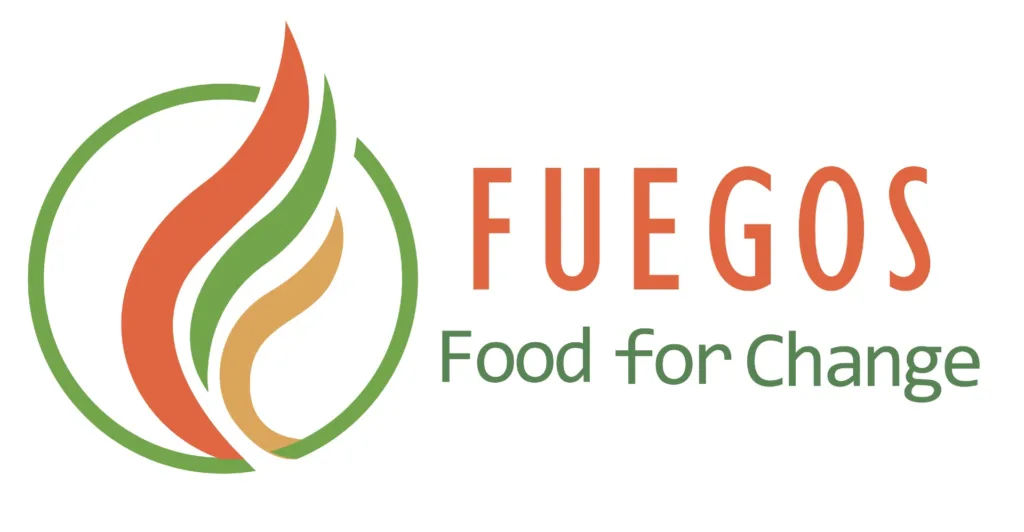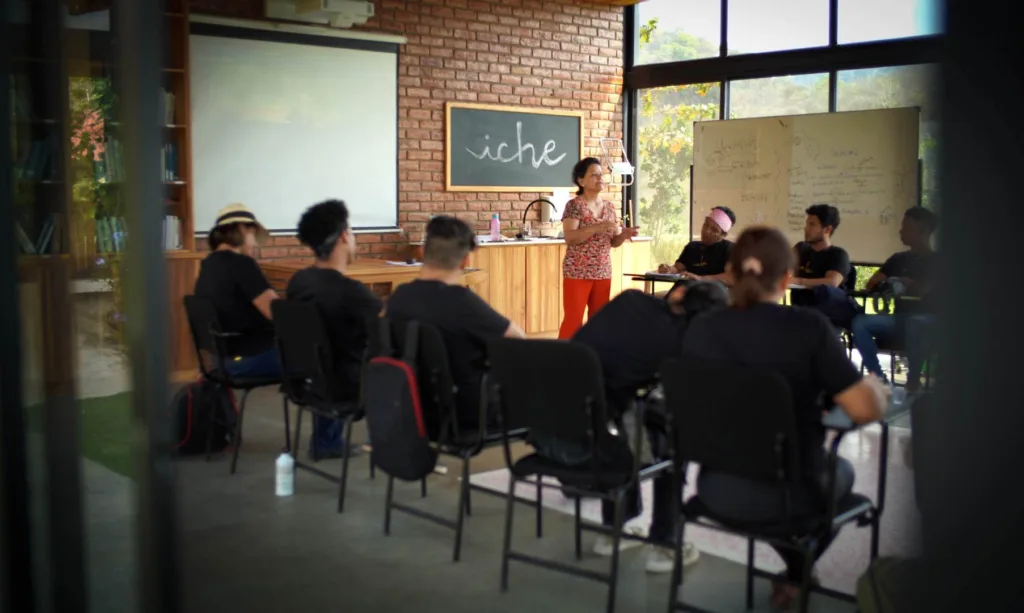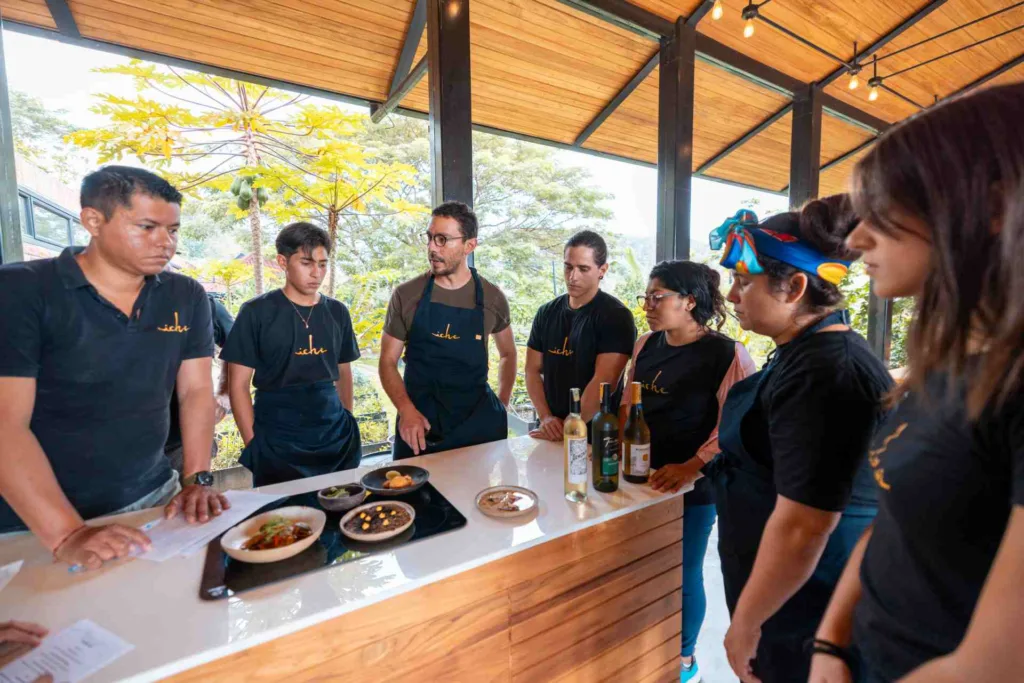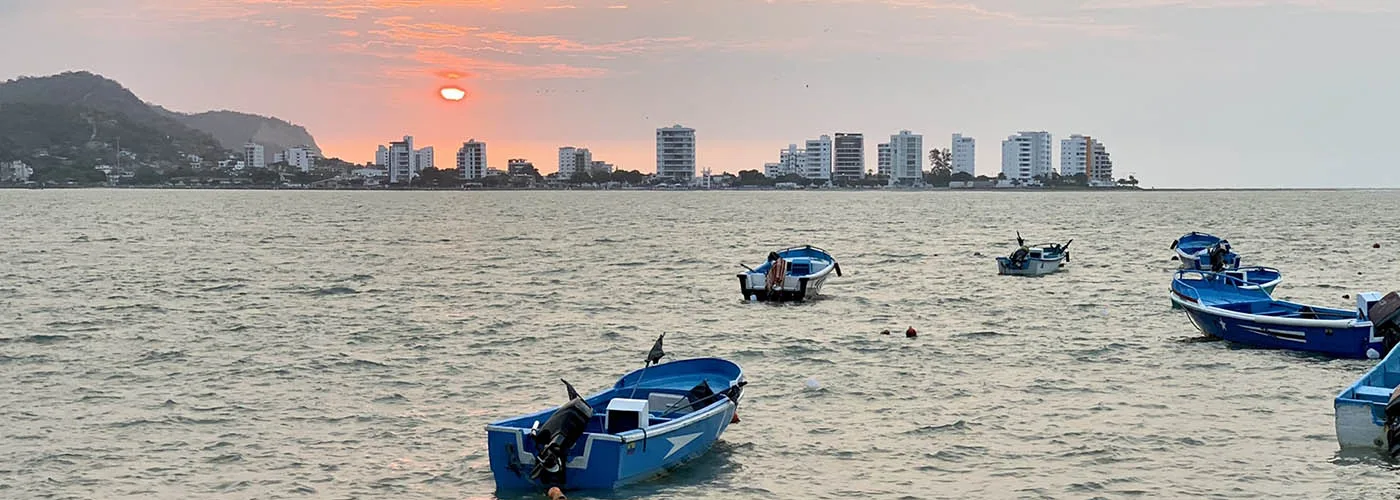MANPANOR
MANPANOR (Municipal Association of the Northern Pacific Coast) is located in Ecuador’s Manabí province. It consists of four municipalities with a total population of around 200,000, of which 60 percent are under 30. The Association was established to strengthen governance and citizen participation in development issues. Its municipalities face the same challenges, amongst which youth migration, as other comparable cities, so our work will serve as an example for replication.
Manabí’s main economic sectors are agriculture, aquaculture, and tourism. Its gastronomy has been declared an intangible heritage of Ecuador. So food tourism and regenerative agriculture have the potential to propel social, economic, cultural and ecological transformation in the coastal area.
Urban Futures is supporting existing efforts to transition towards a more inclusive, sustainable, healthy, and innovative food system. Building on previous and ongoing projects, we are working closely with the Fuegos Foundation. Fuegos specializes in regenerative food gastronomy and has helped develop multi-stakeholder collaborations and food guidelines. Other local partners are involved in agroecology and education, sustainable tourism, and training young leaders.
Find out more about the MANPANOR city-region strategy.
Partner
Fundación FUEGOS
The Foundation for Gastronomic Entrepreneurship and Sustainable Opportunities (FUEGOS) fosters more inclusive, resilient, and innovative societies through food and culture. FUEGOS has played a pivotal role in initiatives and projects that promote sustainable development in the Manabí North Pacific Commonwealth (MANPANOR) on the Ecuadorian coast. For example, promoting regenerative tourism through the Latitud Iche Gastronomic Tourism Joint Route that offers unique tourism experiences while empowering women and youth-led ventures.

Specific role in Urban Futures
- Facilitates local and national strategies and coalitions, including multi-stakeholder platforms, for inclusive, climate-resilient urban food systems.
- Provides capacity building, training and technical assistance based on other local partner needs.
- Supports local ownership in inception phase activities by actors and young people to co-create the food systems of their own city/region.
- Promotes new narratives that favor more inclusive, resilient, and sustainable food systems.



